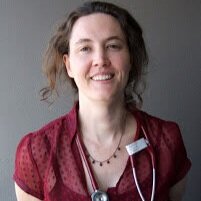
A large-scale mass casualty simulation to develop the non-technical skills medical students require for collaborative teamwork
A large class teaching activity, framed as a simulation of a natural disaster is an acceptable and effective activity for medical students to develop the non-technical skills of collaboration, negotiation and communication, which are essential to team working. The design could be of value in medical schools in disaster prone areas, including within low resource countries, and as a feasible intervention for learning the non-technical skills that are needed for patient safety.

NSW Doctors’ orchestra feels the beat
Dr Clare Skinner works in the Emergency Department of Sydney’s Royal North Shore Hospital. She also plays the oboe and once a year joins around 60 other medicos from around the state to indulge their passion for music, performing as the NSW Doctors’ Orchestra. The proceeds go to the charities related to music and medicine. She tells us about this year’s performance, given in May.

A values-based health system
We do not have a health system with collaboratively oriented values. A plan for reform of the health system must take into account differing stakeholders’ objectives and values and incorporate new values. This requires an agreement by stakeholders to embrace the common good. It will also need strong leadership and a willingness to embrace fundamental change.

How hospital emergency departments are forced to “sell” patients
Cost-shifting, blame-shifting and patient-shifting are an integral part of our health system, and the COAG health reforms are unlikely to signal their demise.

The ethical minefield of bringing back the dead
Having seen cardiac arrests in action - chest compressions, defibrillation, intubation - most friends and colleagues in acute health care would choose not to be resuscitated, unless the chances of coming out alive, cognitively and physically intact, far outweighed the discomfort and risk.

Reforming New South Wales public hospitals: an assessment of the Garling inquiry
The final report of the Special Commission of Inquiry into Acute Care Services in NSW Public Hospitals was published on 27 November 2008. The report acknowledges the challenges facing the New South Wales health system, including increasing numbers of patients, rising treatment costs, workforce pressures, and the breakdown of working relations between clinicians and management.

Finding The Fix For Broke Emergency Wards
In the short term, the only answer to emergency department overcrowding is to fund more staffed hospital beds. In the longer term, we need to think creatively about how to better manage patients with chronic and complex illness in non-hospital settings.

It's Make Or Break Time For Public Hospitals
Staff continue to do more and more with less and less, resulting in risks to patient safety, rising workplace stress and dwindling morale. Many of our precious public hospital clinicians are voting with their feet, seeking employment in the private sector or outside the health sphere altogether.

Inside the emergency department
Emergency departments are under pressure. Chronic staff shortages, access block and other problems are increasingly affecting the ability of medical and nursing staff to treat patients

The challenge of locum working arrangements in New South Wales public hospitals
Use of locum medical officers is increasing in the NSW hospital system. Locums are expensive, and have highly variable expertise and experience. Locum employment arrangements are ambiguous. Locum work may divert junior doctors from participation in specialist training. Attempts to regulate the locum workforce must be accompanied by measures that increase the appeal of public hospital work and vocational training positions.

